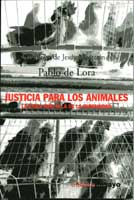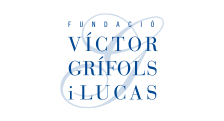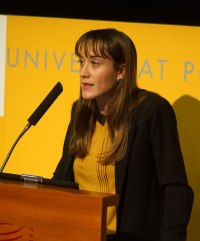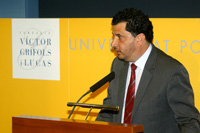2013
Anna Marta Falcó, Lecturer at the College of Nursing at the University of Barcelona
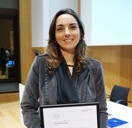
This research project focuses on the conflicts that arise for the nursing staff working in Intensive Care Units (ICU); a clinical setting that is particularly sensitive to ethical dilemmas. The project validates a theoretical model for analysis, it develops a tool for exploring the conflicts that arise in IC and it examines the relationship between such events and the social, demographic and, professional variables in the clinical setting, in order to design strategies for preventing and dealing with such conflicts.
2012
2011
2010
Josefina Goberna Tricas, Professor at Escola Universitària d'Infermeria of Universitat de Barcelona
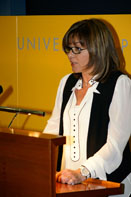
In this thesis various methodologies have been applied, starting with historiographical procedures, analysis and interpretation of texts which have enabled full understanding of historical documents and how these have been passed on throughout the generations. Later in the study there is a description and analysis of various clinical practice models.
Finally the principles and forms of bioethical analysis have been applied to configure a framework of knowledge where actions and decisions may be taken that respond to the needs detected in these studies.
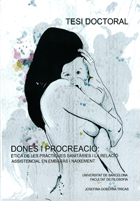
2009
David Rodríguez-Arias, Professor of Philosophy at Universidad de Salamanca
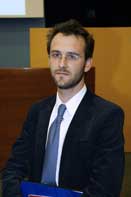
This study is an adaptation of the author's doctoral thesis, completed under joint supervision by the Universities of Salamanca and Paris-Descartes. The central aim of the thesis was to analyze the ethical issues regarding the determination of human death and the extraction of organs for transplant.
It incorporates empirical research conducted in Spain, France and the United States, and funded by France's Agency for Biomedicine, and aims to analyze and compare knowledge, opinions and attitudes of over five hundred health professionals in these three countries regarding brain death and organ transplants.
The study consists of four sections:
- Setting out the historical relationship between brain death and organ transplants, and explaining the current legal-medical model for determining human death and proceeding to extract the organs.
- Discussing the conceptual and epistemological problems which underlie the determination of human death and its normative implications.
- Debating organ extraction as a genuinely normative problem.
- Exploring the knowledge and opinions of the professionals involved in the process of organ donation and transplantation with regard to the concept of death and the extraction of organs.
Faculty of Philosophy at the University of Salamanca
http://www.usal.es/webusal/node/29
2008
Antonio Casado da Rocha, Researcher at the Department of the Philosophy of Values and Social Anthropology at the Universidad del País Vasco
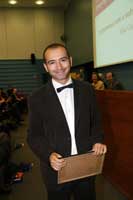
Casado da Rocha, A.
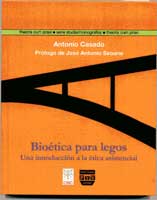
2007
Iñigo de Miguel Beriain, Researcher with the Inter-University Chair in Law and the Human Genome of the Universidad del País Vasco -EHU
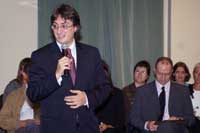
In the study, Iñigo de Miguel looks at cloning and the ethical and legal framework. Ten years after the birth of Dolly the sheep, he revisits the debate on cloning, updating the ethical considerations and proposing a range of ideas to address them from a current perspective.
The book also considers the past, present and future impact on our societies of the transfer of cell nuclei, whether as a result of new stem cell production techniques or directly through the cloning of human beings.
de Miguel Beriain, I.
La clonación, diez años después.
Granada: Ed. Comares, 2008. 228p.
ISBN: 978-84-9836-408-8.
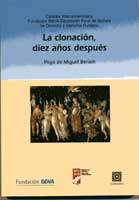
2006
Daniel Soutullo España, Professor of Biology at the Instituto Monte da Vila de O Grove de Pontevedra
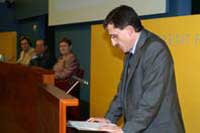
In this book, Daniel Soutullo analyzes the importance of biology in the spectrum of human issues. The author develops a deep criticism of sociobiology, a theory which explains the social behaviours of humans through biology, beginning with the original theory and continuing through recent developments. The relation between biological evolution, cultural changes and the development of moral conduct as a distinctive human characteristic are the focus of this investigation.
Soutullo, D. Biología, cultura y ética.
Madrid: Talasa Ediciones, 2005. 142p.
ISBN: 84-96266-07-9.
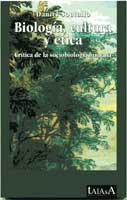
2005
Salvador Tarodo Soria, Doctor of Law and Philosophy at the Universidad del País Vasco
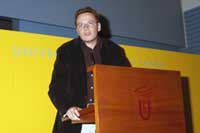
Recent legislation on the rights of health service users provides an appropriate legal framework within which to ensure respect for the autonomy of the individual within the health sector.
The increasingly diverse nature of our societies and the latest developments in medicine and biology have made our world a more interesting place, but have also made it more complicated. Moral and cultural pluralism means that we have to face the challenge of how to reconcile different concepts of life in a way which respects the values and principles enshrined in the constitution and does not violate our fundamental rights.
In the context of health, this pluralism has brought into stark relief the fact that a patient's welfare cannot be determined independently of the patient's own will. The decisions which a patient takes about his own health are probably one of the areas of his life in which he most clearly expresses his personal beliefs, which are protected by the right to freedom of conscience.
The existence of one's own space (right to privacy), the freedom to form an idea about issues which affect one's own health (right to health information) and the freedom to act in accordance with one's own beliefs (right to decide on issues which affect one's own health) are guarantees within the health context of the coherence of the individual, a source of self-respect and of respect for others, which our Constitutional Court has irrevocably linked to the dignity of the individual.
Tarodo,S. Libertad de conciencia y derechos del usuario de los servicios sanitarios.
Bilbao: Servicio Editorial.
Universidad del País Vasco/ Euskal Herriko Unibertsitatae, 2005. 408p.
ISBN: 84-8373-740-X
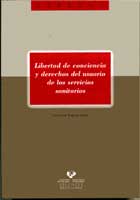
2004
Pablo de Lora Deltoro, Professor of Legal Philosophy at the Universidad Autónoma de Madrid
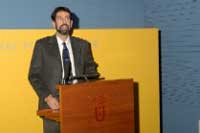
Ethics is strictly a human issue, but its domain does not exclude animals, beings that do not possess a sense of justice. The way we behave towards animals is not morally irrelevant when they are affected by our actions. Disregarding animals simply because they do not belong to our species is an unjustifiable form of discrimination. Eradicating this discrimination would have an extraordinary impact on our attitude toward and interaction with the animal kingdom.
Using references to studies on animal behavior, history, non-western traditions and persisting institutionalized cruelty, de Lora critically analyzes ethical reflections in favor of animal well-being, just as philosophers from Pythagoras to Peter Singer have defended justice for animals both through theory and daily practice.
de Lora, P. Justicia para los animales.
La ética más allá de las humanidad.
Madrid: Alianza Editorial, 2003. 342p.
ISBN: 84-206-4157-X
